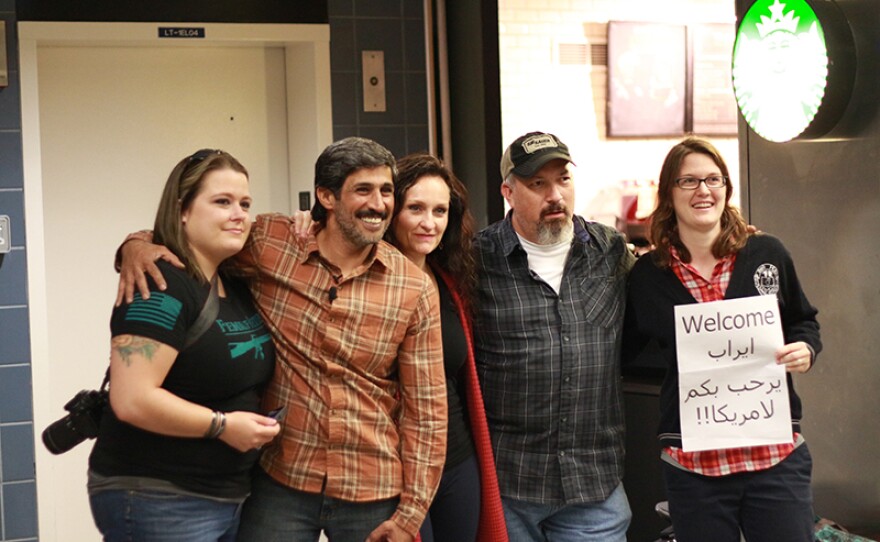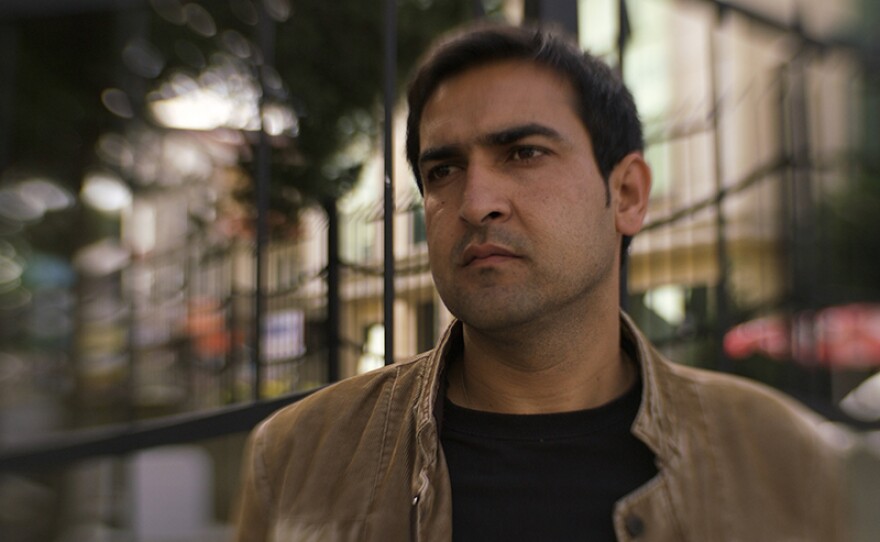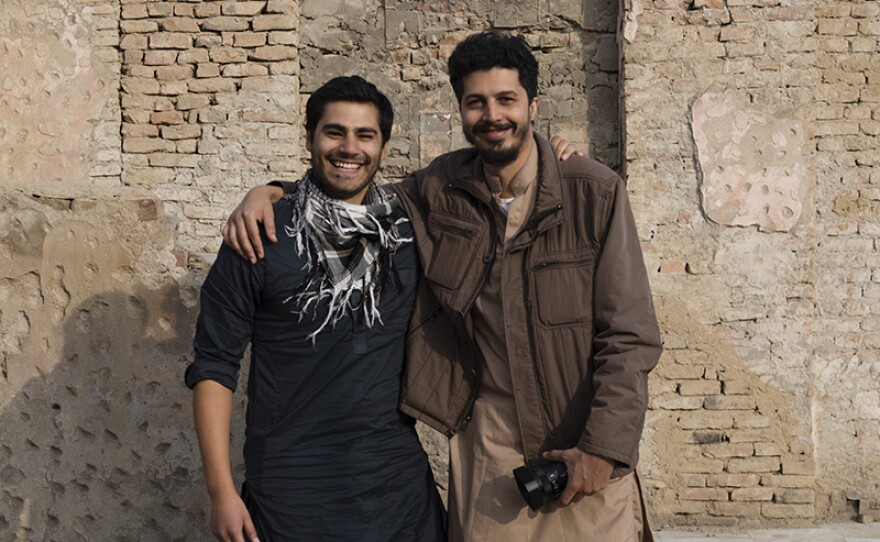—Iraqi and Afghan Interpreters Who Risked Their Lives for the U.S. Military Struggle to Find Safety for Themselves and Their Families—
During the wars in Iraq and Afghanistan, more than 50,000 local interpreters helped protect U.S. military forces on the ground, enabling them to communicate with the local population. But those who took the job were often considered traitors.
In the aftermath of war, some have been able to leave their home countries and reach safety, while others still languish in hiding and fear for their lives.
Filmed over the course of two years “The Interpreters” follows three of these men, each of whom faces an impossible dilemma: remain in place and wait for paperwork that may never arrive or attempt a hazardous exit route to Europe.
As the years go by, hope dwindles for the thousands of interpreters still seeking the protection they were promised for their sacrifice.
Directed by Andrés Caballero and Sofian Khan, "The Interpreters" premieres on INDEPENDENT LENS on Veterans Day, Monday, Nov. 11, 2019.
The Interpreters:
Phillip Morris — whose chain-smoking earned him the nickname — served in Iraq alongside Paul Braun, a sergeant in the Minnesota National Guard who became his best friend. After coalition forces withdrew in 2011, Phillip and his family came under threat.
Paul, back home to Minneapolis, works tirelessly on behalf of Phillip to help him obtain a Special Immigrant Visa (SIV). This 2008 program was created by the U.S. to help interpreters like Philip, but the process has been marred by long delays and backlogs; so far, only a fraction of the tens of thousands of interpreters who were left behind have received visas. Growing anti-refugee rhetoric has also put the future of the program in jeopardy.

Fortunate to have an American soldier advocating on his behalf, Phillip is finally able to make it to the U.S. in 2013. But his family’s paperwork is delayed, and they’re forced to stay behind in Iraq amidst the rising threat of ISIS.
While Phillip acclimates to life in America, he waits anxiously for his family to join him. Eventually he must go back to complete their paperwork, once again facing the threat of being a marked man in his country.
Malik is an active interpreter with the Americans at the Air Force base in Kabul and has been waiting for his Special Immigrant Visa for nearly four years. Incredibly, he has the security clearance to continue working on the base alongside U.S. troops but is stuck in the security review stage of the visa process.
Every trip back and forth to the base is dangerous. To ensure his family’s safety, Malik moves with his wife and two children from his father-in-law’s house to his sister’s house to his uncle’s house every few days.
Mujtaba is an Afghan interpreter who worked with the Army and the DEA fighting drug traffickers. Fearful for his life and too impatient to wait any longer for his visa, Mujtaba and his family leave for Turkey. While attempting to cross the Aegean Sea to Greece with the help of smugglers, a tragic accident sets him on a path he never imagined.

“‘The Interpreters’ has all the heartache and danger of a political thriller,” said Lois Vossen, executive producer of INDEPENDENT LENS. “The story exposes the political twists and turns of our complex asylum and immigration system for interpreters who supported and saved the lives of American troops in Afghanistan and Iraq. Ultimately, the question we’re asked to answer is: What is owed to the people who put themselves and their families on the line in service to America, and who deserves a place in this country?”
Watch On Your Schedule:
This episode will be available simultaneously with the broadcast for streaming on demand for a limited time. Extend your viewing window with KPBS Passport, video streaming for members supporting KPBS at $60 or more yearly using your computer, smartphone, tablet, Roku, AppleTV, Amazon Fire or Chromecast. Learn how to activate your benefit now.
Join The Conversation:
INDEPENDENT LENS is on Facebook, Instagram, and you can follow @IndependentLens on Twitter. #IndieLensPBS
Credits:
Directed by Andrés Caballero and Sofian Khan. Produced by Sofian Khan, Andrés Caballero, Mark Steele, Simon Taufique. Executive Producers: Sally Jo Fifer, Lois Vossen, Carrie Lozano. Supervising Producer: Shana Swanson. Cinematography by Sofian Khan. Edited by Francisco Bello, Fabian Caballero.






